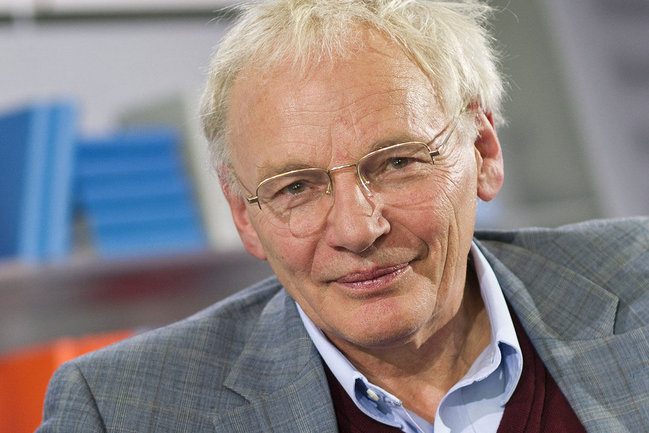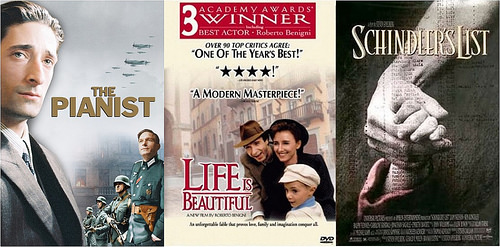Brenton Sanderson
The Occidental Observer
January 20, 2016
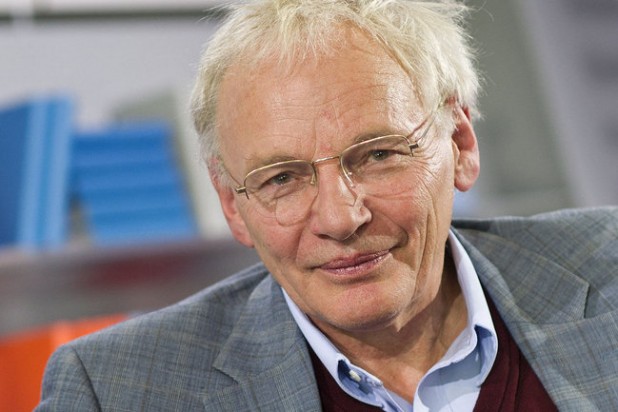
A Review of “Why the Germans? Why the Jews?” by Götz Aly
The culture of the Holocaust is destroying Germany. Endlessly reinforced over decades by the intellectual and media elite, the notion that Germans and their descendants are responsible for “the single most evil event in human history” has had such a demoralizing effect that millions fully support Angela Merkel’s current attempt to destroy the ethnic basis of their nation. The culture of the Holocaust has been used to devastating effect right throughout the West to stifle opposition to the Jewish diaspora strategies of mass non-White immigration and multiculturalism. “The Holocaust” is the absolute lynchpin of the White displacement agenda, with any hint of European racial or ethnic identification or solidarity being instantly linked with Auschwitz and its alleged horrors in the minds of millions (probably billions) of people.
The entire social and political order of the contemporary West — based as it is on spurious notions of racial equality and the alleged virtues of racial diversity and multiculturalism — has been erected on the moral foundations of the Holocaust. White people cannot be recognized as a group with interests because “never again.” Western nations have a moral obligation to accept unlimited non-White immigration from the Third World because “never again.” Europe must open its borders to hostile Islamic invaders because “never again.” Whites should meekly accept their deliberate displacement (and ultimate extinction) because “never again.”
Jewish historian Peter Novick has described how today’s culture of “the Holocaust” emerged as part of the collective Jewish response to the Eichmann trial in 1961–62, the Six-Day War in the Middle East in 1967, and, in particular, the Yom Kippur War in 1973. While the foundation was laid at Nuremberg in 1946, it was with these later events, and the anxieties they engendered among Jews throughout the world, that “there emerged in American culture a distinct thing called ‘the Holocaust’ — an event in its own right,” and with it a term that entered the English language as a description of all manner of horrors. From that time on, he notes, “the Holocaust” has become “ever more central in American public discourse — particularly, of course, among Jews, but also in the culture at large” and has since “attained transcendent status as the bearer of eternal truths or lessons that could be derived from contemplating it.”[i]
Novick acknowledges the primary reason for this state of affairs: that Jews, with their domination of academia and the media and entertainment industries, virtually dictate this “American” (and by extension “Western” culture) which has become so Holocaust-obsessed. He argues that the importance of the Holocaust is not a spontaneous phenomenon but stems from highly focused, well-funded efforts of Jewish organizations and individual Jews with access to the major media:
We are not just “the people of the book,” but the people of the Hollywood film and the television miniseries, of the magazine article and the newspaper column, of the comic book and the academic symposium. When a high level of concern with the Holocaust became widespread in American Jewry, it was, given the important role that Jews play in American media and opinion-making elites, not only natural, but virtually inevitable that it would spread throughout the culture at large. (Peter Novick, The Holocaust in American Life (Mariner Books, 1999), 12)
The Jewish director Jill Soloway observed that Jews in Hollywood are “recreating culture to defend ourselves post-Holocaust.” This ethnic “defense” has entailed the intensive promotion of racial diversity and mixing, the denigration of White people and their traditional culture, the hyper-sexualization of what now passes for Western culture, the glamorizing of sexual non-conformity and the breakdown of traditional gender roles — all alongside constant reminders of “the Holocaust” with its concomitant themes of noble Jewish victimhood and unsurpassed German (White, European) evil.
Since 1945, some 148 feature films have been made about “the Holocaust” — the majority after 1970. The Jewish intellectual Chaim Bermant observed that “the Jews that came to dominate Hollywood” between them “did more to determine American attitudes and tastes than the churches or even the schools.”[ii] The psychological effects of Hollywood’s Holocaust-obsession were clear by the 1990s when one survey found that 97 percent of Americans knew what “the Holocaust” was — substantially more than knew what “Pearl Harbor” related to, or that the United States has dropped two atomic bombs on Japan, and far more than the 49 percent that knew that the Soviet Union had fought on the American side in World War Two.[iii]
Throughout the West proliferating “Holocaust” memorials and museums are lavishly funded by taxpayers, and study of “the Holocaust” in schools is mandated by law in many jurisdictions. As well as serving to morally disarm Whites concerned about their own immigrant-led displacement, the culture of “the Holocaust” is a key part of Jewish efforts to prevent intermarriage in the diaspora. Eric Goldstein, for instance, notes how “Jews discuss, read about, and memorialize the Holocaust with zeal as a means of keeping their sense of difference from non-Jews alive.”[iv]
“The Holocaust” has become, in the words of Nicholas Kollerstrom, “an ersatz substitute for genuine metaphysical knowledge,” with Auschwitz now serving as the spiritual center of a new religion and a place of awed pilgrimage for millions of penitent Europeans. The narrative has also unleashed an endless flow of money from Germany to Israel and to compensate more “Holocaust” survivors than there were ever Jews in countries under German control.[v]
Without the “Holocaust” narrative, and the veneer of moral rectitude it confers upon Jewish activism, it is doubtful the 1965 immigration laws in the United States would have passed. Likewise, the toppling of the White Australia policy just eight years later — a direct result of Jewish ethno-politics — would probably not have occurred without the moral leverage “the Holocaust” afforded Jewish activists and their non-Jewish collaborators. The leftwing Australian historian Professor Henry Reynolds has acknowledged the Jewish ethno-political (and Holocaust-centered) origins of the regnant belief in biological racial equality when he noted that: “My students often ask me how it was that people in the past held such objectionable views [about race]. They have no understanding of just how pervasive racial thought was a generation or two ago, how the Second World War and the Holocaust marked an intellectual watershed after which nothing would be the same again.”[vi]
Boasian anthropology and the “the Holocaust”
While the Jewish critique of racialist thought, spearheaded by Franz Boas, preceded World War II by several decades, it gained urgency following Hitler’s assumption of power in 1933. In his book Racism, posthumously published in 1938, the Jewish “sexologist” Magnus Hirschfeld set out to provide a refutation of the racial doctrines of the National Socialists. “If it were practicable,” he wrote, “we should certainly do well to eradicate the term ‘race’ as far as subdivisions of the human species are concerned.”[vii] During the war the writings of Boas, his students Ruth Benedict, Melville Herskovits and others critical of the link between race, culture and ability began to reach a mass audience. Benedict’s Races and Racism, published in 1942, dismissed racial thought as “a travesty of scientific knowledge.”[viii] In the same year, the Jewish intellectual Ashley Montagu (born Israel Ehrenberg) published Man’s Most Dangerous Myth: The Fallacy of Race which became a best seller.
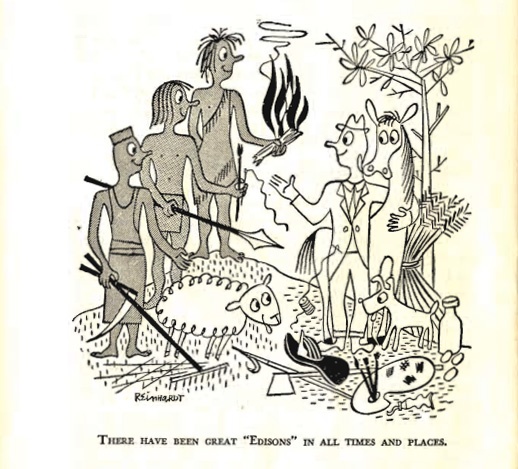
These Jewish ethnic activists and their allies, with their pseudo-scientific theories, were only able to reach a mass audience through the eager assistance and promotion of Jewish influence in the press and publishing houses — not because of the intrinsic merits of their arguments. As a result of these efforts, the British historian David Cannadine has noted that: “By the end of the Second World War, the notion that race was the most significant form of collective human identity, consciousness, and ranking had been stripped of any serious claim to intellectual respectability.”[ix]
In 1949 the United Nations Educational, Scientific and Cultural Organization (UNESCO) convened a panel of “scientists,” chaired by Montagu, to “produce a definitive verdict on race.” One leftist historian has pointed out how the panel was comprised of “a team of ten scientists all of whom were recruited from the marginal group of anthropologists, sociologists and ethnographers who perceived the race concept primarily as a social construct.” He also notes that: “Most of these had at some point either been affiliated with the scientifically marginalized groups of cultural anthropologists that were mostly students of Franz Boas at Colombia University in New York.”[x]
After the panel’s first meeting at the UNESCO headquarters in Paris, Montagu wrote a proposal for a final statement on race during one night at a nearby hotel, and over the following days the participants discussed “the race concept” in light of Montagu’s draft.[xi] Montagu claimed that “only if our deliberations had taken place at Auschwitz or Dachau could there have been a more fitting environment to impress upon the committee members the immense significance of their work.”[xii] At that time UNESCO House was the former headquarters of the German military during its occupation of France during World War II. Underpinning the words of the UNESCO declaration “was widespread revulsion at the Jewish Holocaust.”[xiii] Leftist academic Anthony Hazard notes that “a clear rejection of anti-Semitism seemed to underline the entire effort.”[xiv]

The Montagu-led UNESCO panel’s statement (replete with falsehoods and specious arguments) was issued in 1950. “Scientists,” it claimed, “have reached general agreement in recognizing that mankind is one: that all men belong to the same species, Homo sapiens.” Genes responsible for the “hereditary differences between men” were “always few when compared to the whole genetic constitution of man and the vast number of genes common to all human beings regardless of the populations to which they belong.” It therefore followed that “the likenesses among men are far greater than their differences.” The error here is assuming that small differences in the input to a system must yield small differences in the system’s output. On the contrary, it is often the case that small differences in the input result in large differences in the final outcome. For instance, it has often been pointed out that human beings and chimpanzees differ in less than two percent of their DNA; nevertheless, the difference in intelligence between the species is enormous. Many genetic diseases are caused by a single gene, and some of these are deadly.
The UNESCO panel’s statement proposed that it would be best “to drop the term ‘race’ altogether,” since “for all practical purposes, ‘race’ is not so much a biological phenomenon as a social myth.” Montagu and his colleagues ended their “definitive statement on race” with a ringing endorsement of the idea of a common humanity: “Biological studies lend support to the ethic of universal brotherhood; for man is born with drives towards co-operation. … In this sense, every man is his brother’s keeper.” Here we find the invariable Jewish tendency to couch the pursuit of specific Jewish interests in a pretended universal benevolence.
UNESCO’s Montagu-drafted “definitive verdict on race,” was published with a press release with the headline: “No biological justification for race discrimination, say world scientists: Most authoritative statement on the subject.”[xv] The New York Times reported on the statement with a story whose headline proclaimed: “No Scientific Basis for Race Bias Found by World Panel of Experts.”[xvi] The UNESCO Statement on Race amounted to the foisting of a Jewish ethno-political agenda onto the global polity — with devastating consequences for the interests of Europeans.
With this new agenda now in place at the highest level, and with the demonization and marginalization of dissenters, it was almost inevitable in the decades following the defeat of Germany that the remaining policies constructed on the basis of racialist thought and identity would be dismantled. The 1950 statement on race (which contributed to the 1954 U.S. Supreme Court desegregation decision in Brown v. Board of Education in Topeka) was described by one sympathetic commentator as “the triumph of Boasian anthropology on a world-historical scale.”[xvii]
Cannadine notes that, during the decades that followed, the United States, Canada, Australia, and New Zealand “abandoned their policies of racial discrimination, ended their restrictions on immigration … and embraced multiculturalism.” This misleadingly implies that these changes occurred as a result of a shift in popular sentiment, of people suddenly coming to their senses and “embracing” racial diversity. The reality in the U.S., and, as I explicated in my series of essays on Australia, was that the movement toward the liberalization of immigration policies in countries like Australia was a top-down, totally undemocratic movement pursued for specifically Jewish ends.
Götz Aly — Reinforcing the culture of “the Holocaust” in Germany
Roger Devlin has observed that “all of us in the West are supposed to be responsible for the ills of the rest of the world, but only Germans have had their identity entirely constructed on guilt for 70 years.” One of those who has worked hard to reinforce the culture of “the Holocaust” in Germany, and to entrench the climate of opinion that is leading the German people to destruction, is the University of Frankfurt historian Professor Götz Aly who has written a series of books on German “anti-Semitism,” the Third Reich and “the Holocaust.” Aly, who was involved with militant far left organizations in the sixties and seventies, is the descendent of a Turkish soldier who converted to Christianity in the seventeenth century. Despite his partial Turkish ancestry, Aly identifies as an ethnic German. He is, nevertheless, acutely critical of the German people and their history. Aly’s latest book (recently translated into English) is Why the Germans? Why the Jews? Envy, Race Hatred, and the Prehistory of the Holocaust, which is Aly’s attempt to explain “why German history culminated in genocide.”[xviii]
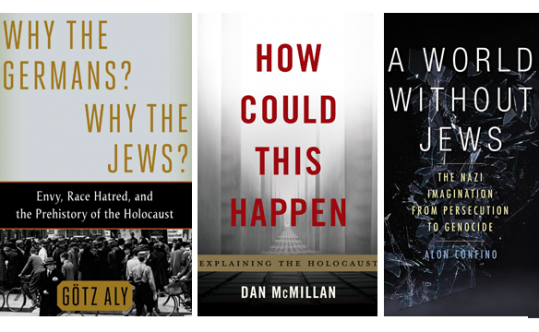 Unlike the bulk of establishment historians, such as the egregious Daniel Jonah Goldhagen, Aly is at least willing to accept that the origins of post-Enlightenment German “anti-Semitism” can be traced to conflicts of interest between Jews and non-Jews — or rather, in his view, to the envy of average Germans at the rapid social and economic advancement of Jews in the nineteenth and early twentieth centuries. He regards attempts to account for the rise of National Socialism solely on the basis of political ideology as unsatisfactory, observing that “conservatives weren’t the only ones guided by hostility toward and even hatred of Jews. Reformers and pioneers of political liberty often were as well. We must look for explanations elsewhere.”[xix]
Unlike the bulk of establishment historians, such as the egregious Daniel Jonah Goldhagen, Aly is at least willing to accept that the origins of post-Enlightenment German “anti-Semitism” can be traced to conflicts of interest between Jews and non-Jews — or rather, in his view, to the envy of average Germans at the rapid social and economic advancement of Jews in the nineteenth and early twentieth centuries. He regards attempts to account for the rise of National Socialism solely on the basis of political ideology as unsatisfactory, observing that “conservatives weren’t the only ones guided by hostility toward and even hatred of Jews. Reformers and pioneers of political liberty often were as well. We must look for explanations elsewhere.”[xix]
Despite these small concessions to reality, Aly remains firmly within the camp of intellectual apologists for Jews in proposing that “anti-Semitism” is a phenomenon that always has its wellspring in the psychopathology or delusions of non-Jews — in this case in the pathological jealousy of Germans. His exoneration of Jews from any role whatever in contributing to manifestations of “anti-Semitism” is hardly surprising given that Aly’s book has the imprimatur of the leading Jewish representatives of the Holocaust industry. The author, who is a past winner of a Jewish Book Award, notes, for example, how his research was “made a lot easier and a lot more pleasant by my helpful and welcoming colleagues at Yad Vashem” and that his work was underwritten by the Baron Friedrich Carl von Oppenheim Stipend for Research on Racism, Anti-Semitism, and the Holocaust.
From the standpoint of an unquestioning acceptance of the dogmatic Hollywood version of “the Holocaust,” Götz Aly asserts that: “What remains contentious are questions of its ultimate meaning and deeper causes,” and argues that “the answers will, no doubt, continue to be fragmentary. Nonetheless, historians have a duty to seek them.” So, according to the author, historians have a moral and intellectual duty to search for the ultimate meaning of “the Holocaust” (provided of course this fully exonerates Jews) but not a duty to determine the actual facts regarding the alleged event itself. So much for the once revered academic tradition of fearlessly seeking out the truth wherever it leads. In the subsequent parts of this review I critically analyze Aly’s “envy” theory of the German “anti-Semitism” which forms the basis of his much praised book.
Notes
[i] Peter Novick, The Holocaust and Collective Memory (London: Bloomsbury, 2000), 144.
[ii] Chaim Bermant, Jews (London; Weidenfeld & Nicholson, 1977), 91.
[iii] Novick, Holocaust, 232.
[iv] Eric L. Goldstein, The Price of Whiteness: Jews, Race, and American Identity (New Jersey: Princeton University Press, 2008), 211.
[v] Nicholas Kollerstrom, Breaking the Spell: The Holocaust, Myth & Reality (Uckfield: Castle Hill, 2014), 133.
[vi] Henry Reynolds, Why Weren’t We Told? — A personal search for the truth about our history (Melbourne: Penguin, 2000), 248-249.
[vii] David Cannadine, The Undivided Past: Humanity Beyond Our Differences (New York: Alfred A. Knopf, 2013), 205.
[viii] Ibid., 210.
[ix] Ibid., 211.
[x] Poul Duedahl, “From racial strangers to ethnic minorities, On the socio-political impact of UNESCO, 1945-60.” Paper presented at 7th Annual International Conference on Politics and International Affairs in Athens, Greece, in 2009.
[xi] Ibid.
[xii] Anthony Q. Hazard, Postwar Anti-Racism: The United States, UNESCO, and “Race,”1945-1968 (New York: Palgrave MacMillan, 2012), 38.
[xiii] Cannadine, The Undivided Past, 212.
[xiv] Hazard, Postwar Anti-Racism, 39.
[xv] Duedahl, “From racial strangers.”
[xvi] Elazar Barkan, The Retreat of Scientific Racism: Changing Concepts of Race in Britain and the United States between the World Wars (Cambridge UK: Cambridge University Press, 1993), 341.
[xvii] Robert Wald Sussman, The Myth of Race: The Troubling Persistence of an Unscientific Idea (Cambridge MA: Harvard University Press, 2014), 207.
[xviii] Götz Aly, Why the Germans? Why the Jews?: Envy, Race Hatred, and the Prehistory of the Holocaust (New York: Metropolitan Books, 2014), 2.
[xix] Ibid., 3.
[xx] Ibid., 1.
[xxi] Ibid., 9.
[xxii] Ibid.
[xxiii] Ibid., 110.
